While most of us invest in quality products for the skin on our faces and bodies, we tend to neglect our scalps.
Whether you’re eager to DIY the bleached scalp trend a la Kim Kardashian or you’re cautious of ridding your fresh blow dry with a hat on a sunny day, there are many reasons why scalp care falls by the wayside.
However, the skin on our scalp is just as susceptible to burns and damage as the rest of our skin. It’s a delicate area, and it’s time we treated it as such.
In this guide, we’ll cover the common causes of a burnt scalp and how to heal a burnt scalp. We’ll also share tips for protecting your scalp in the future so that scalp burns will be a distant memory.

What Causes a Burnt Scalp?
There are two main causes of a burnt scalp: sun exposure and chemical bleaching.
Burnt Scalp from the Sun
We all know that too much exposure to ultraviolet (UV) rays can burn our skin.
Any exposed skin can burn in the sun, and that includes the scalp. If you forget to apply sunscreen to the scalp or opt out of wearing a hat, the sensitive skin on your scalp may burn.
Symptoms of a sunburnt scalp include
- Redness
- Warm or hot to touch
- Tender or painful scalp
- Itchy scalp
- Small pus-filled blisters
In severe cases, you may feel nauseous, have a fever, or develop a headache.
Not only is sunburn on the scalp uncomfortable, but it is also a leading risk factor for developing skin cancer. The scalp is also much harder to monitor for moles, making scalp protection all the more important.
Burnt Scalp After Bleaching
Hair bleaching is the method of lightening the colour of the hair.
When bleach is applied to the hair, the bleaching agent chemically interacts with the melanin in your hair and strips it of its colour.
Bleaching products often contain harsh chemicals, including the commonly-known hydrogen peroxide.
Scalp bleaching refers to applying bleach onto the scalp directly, rather than just on your strands.
If applied incorrectly, scalp bleaching can lead to chemical burns on the scalp.
Chemical burns can be superficial, meaning they are located close to the surface of the skin, or deep, which signals a severe burn.
A scalp burn typically occurs when bleaching products have been left on the area for too long.
Symptoms of a bleached scalp burn include
- Pain
- Blisters
- Redness
- Swelling
- Weeping blisters
Can a Burnt Scalp Cause Dandruff?
A scalp burn can lead to a number of symptoms that are very similar to dandruff, including itchiness and flaking, but it can’t actually cause dandruff.
So, what causes dandruff?
All of our scalps are home to a yeast-like fungus called Malassezia globosa. Sounds gross, we know, but it’s completely natural. This fungus is usually harmless and survives on the natural oils on our scalps.
Oleic acid is a by-product of Malassezia. Many people are sensitive to oleic acid, and this sensitivity causes dandruff. The primary symptoms of dandruff are itchiness, white flakes, and a dry, irritated scalp.
As we know, sunburn occurs when the skin is exposed to UV rays and is damaged, while bleached scalp burn occurs when harsh bleaching agents are left on the scalp for too long.
When your scalp is recovering from this sunburn or chemical damage, the burn will begin to peel. This is a sign that your skin is ridding itself of the damaged cells. This can cause itching and dryness.
So, these symptoms mimic those of dandruff, but are not actually dandruff.
Skin flaking from a scalp burn is temporary and will stop when the scalp heals, while dandruff is typically an ongoing condition.

Can a Burnt Scalp Cause Hair Loss?
A burnt scalp doesn’t usually cause hair loss.
You may lose some hairs while your skin is peeling, but once your scalp has healed, your hair should regrow and return to normal.
How to Heal a Burnt Scalp
There are a few different ways to soothe your scalp at home to promote healing. The methods differ slightly depending on the cause of your scalp burn.
For a Sunburnt Scalp
- If you have a sunburnt scalp, be sure to shower in cool water until the area has recovered. Hot water will further irritate the skin and can worsen itchiness and pain.
- Go for shampoos without sulphates — like our Crown Cleanse Shampoo — as sulphates can cause irritation.
- Avoid conditioners with dimethicone, as this ingredient can block pores and trap heat. Our Head Doctor Hair Conditioning Treatment is proudly dimethicone-free.
- Keep your product use to a minimum; use your nourishing, hydrating essentials and steer clear of any harsh or deep-cleaning products.
- Dry your hair without heat.
- Use a cold compress to alleviate pain.
- Moisturise the scalp with coconut oil or aloe vera.
- Drink plenty of water. This will help to moisturise your skin and keep you hydrated, which is especially important if you have a fever from a severe burn.
- Use over-the-counter pain relief where necessary.
- When out, wear a hat or stay in the shade.
For a Bleach-Burnt Scalp
If you have experienced a chemical scalp burn, immediately rinse the affected area with cold water. Be sure to wear gloves to protect the skin on your hands.
Flush the skin with cold water for at least 10 minutes to cool the area and clear the chemical residue from your skin. Work gently when touching the affected area, and avoid scrubbing or scratching the skin.
While your scalp burn is healing, try these remedies to soothe the area.
- Use a cold compress.
- Take over the counter medications to relieve pain.
- Keep the area clean to avoid infection. If you need to touch the burn, only do so with clean hands.
- Moisturise the scalp with gentle products to help with itching and flaking.
- Of course like anything, please consult a medical professional too.
How Long Does a Burnt Scalp Take to Heal?
Healing time will depend on the cause and severity of the burn, but usually itit can take a week or two for your scalp to heal.
Take time to give your scalp a little extra TLC during this time, using gentle scalp-friendly products to keep the area clean.

How to Protect Your Scalp From Future Burns
If you’ve just recovered from a scalp burn, it’s important to take steps to ensure your scalp is protected in the future.
To prevent scalp sunburn, look for a hat that covers your ears, back of the scalp, and neck. If you’re hair-free, ensure you apply SPF 50 sunscreen to the scalp everyday, and wear a hat when spending time in the sun.
When it comes to scalp bleaching, be sure to visit a skilled hair specialist. While it might be tempting to bleach your scalp at home, this puts you at higher risk for burns and other complications. Skip the risk and book in with a professional.
Try to wash your hair three to four days before your appointment. This will allow the natural oils on your hair to create a protective layer between the chemicals and your scalp.
If your skin is particularly sensitive, ask your stylist if you can come in for a patch test before your appointment. The stylist will place a dot of bleach behind your ear, let it dry, and rinse it off. Over the next day or two, you’ll be able to watch for a reaction.
When receiving your treatment, if you feel abnormal stinging, itching, or burning, let your colourist know straight away.
Scalp Care Matters
A burnt scalp is entirely avoidable, so while we’ve covered how to heal a burnt scalp, we want to prevent burning incidents in the first place. Prevention is key for a happy scalp.
Take care to load up on SPF and opt for a hat or a cute cap (hint, coming soon) when out and about in warmer months. If you bleach your hair, head to a professional stylist. Your scalp health is worth the extra effort.



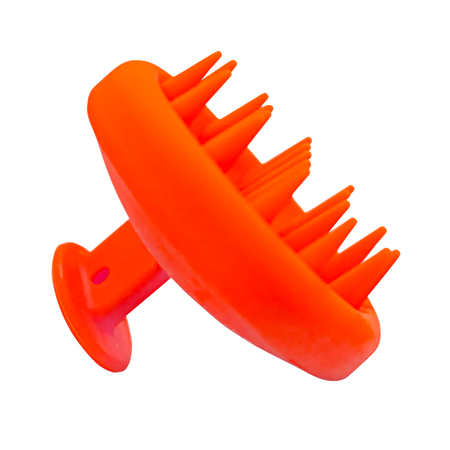
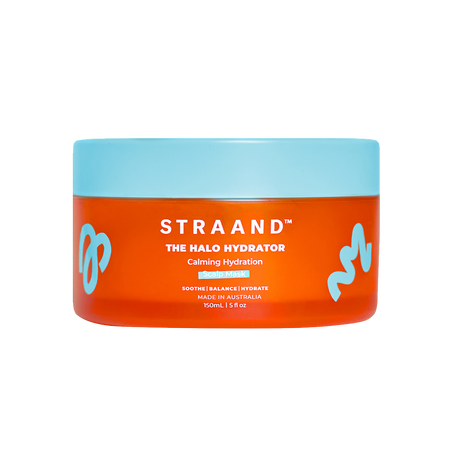
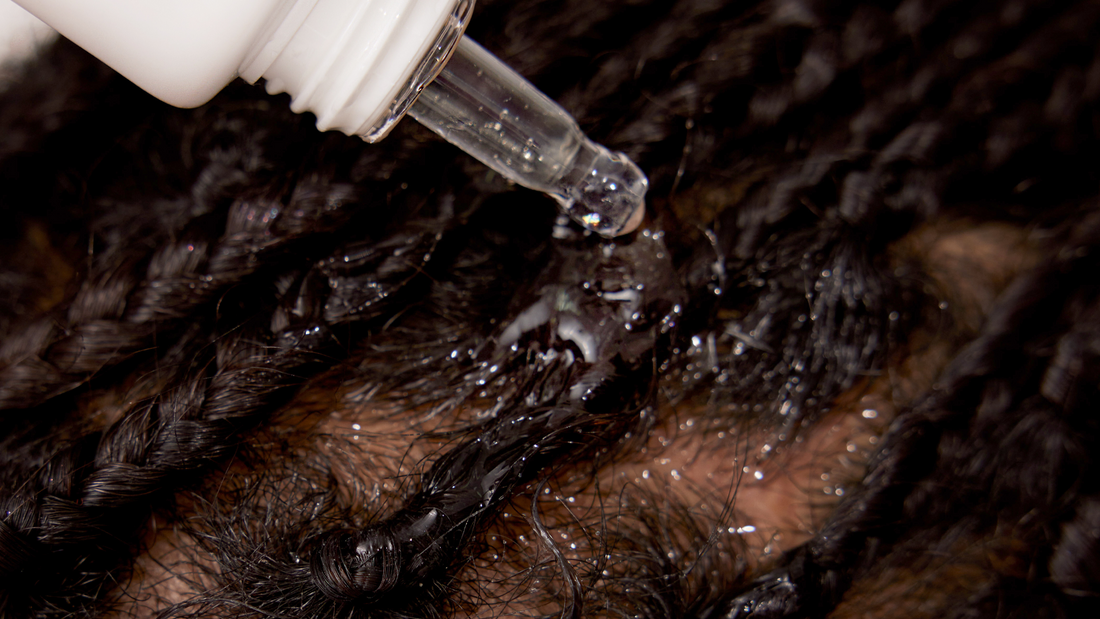




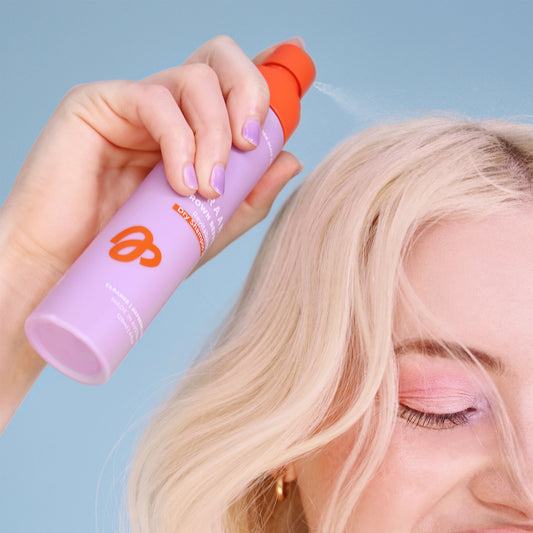


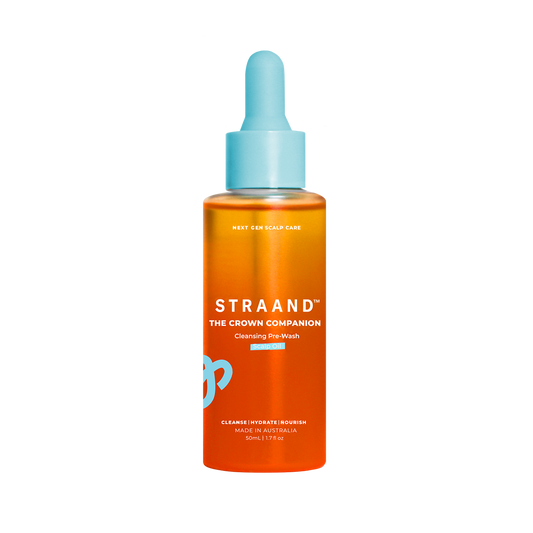
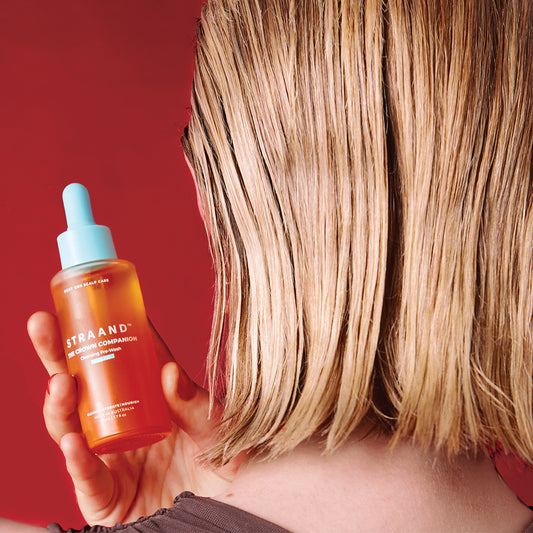

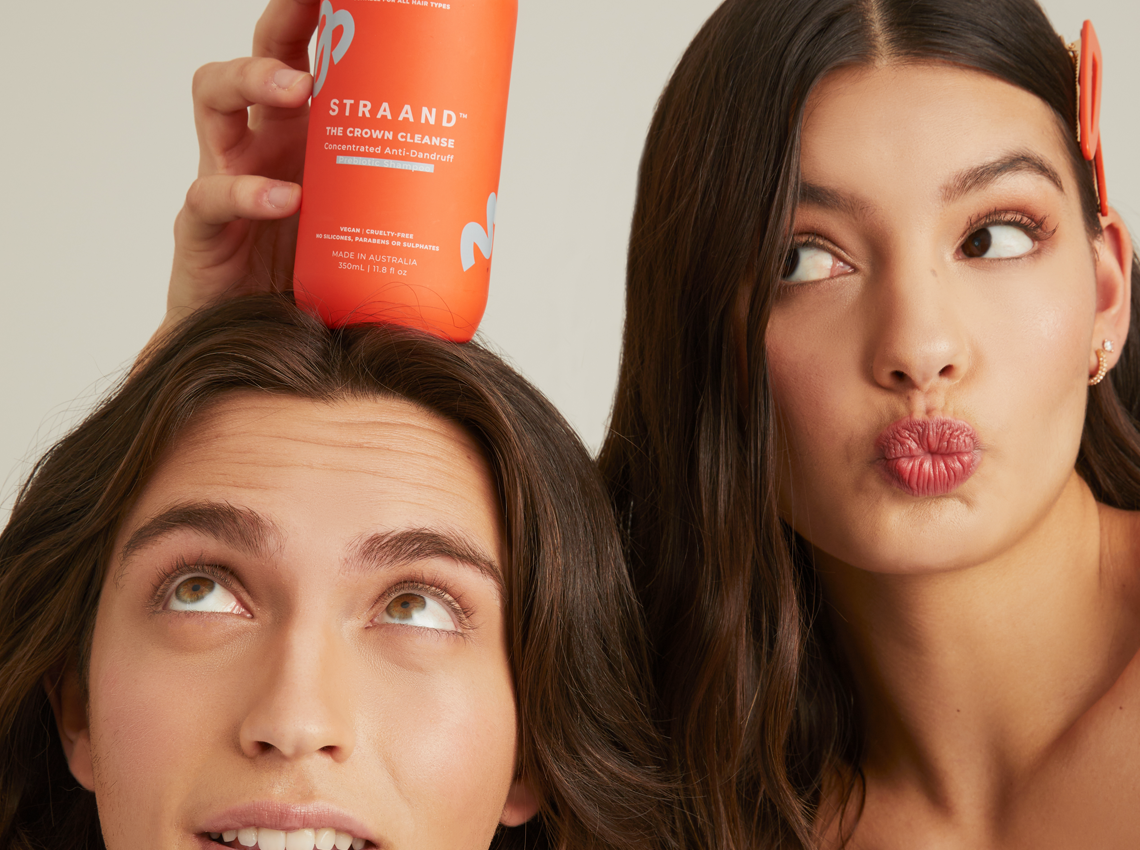
4 comments
Hey Stevie I know you will never see this but YES -?
My friend who is a hair dresser bleached my hair then put a manic panic red Iver the bleach my head is wheepin itching my ears are burnt n I have blisters down my neck should I go hospital
I had hair colour done & due to bleach used my scalp has become red no itching but small boils what to do
How to treat a scalp burn caused by relaxers